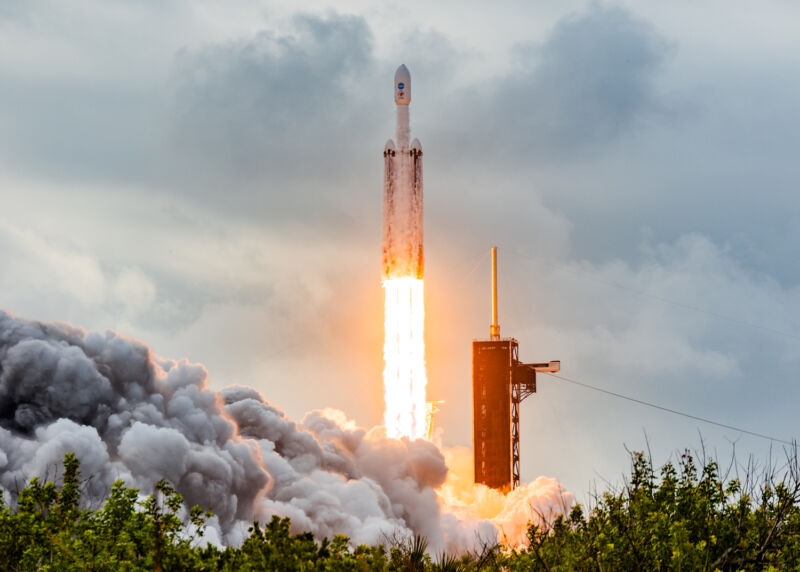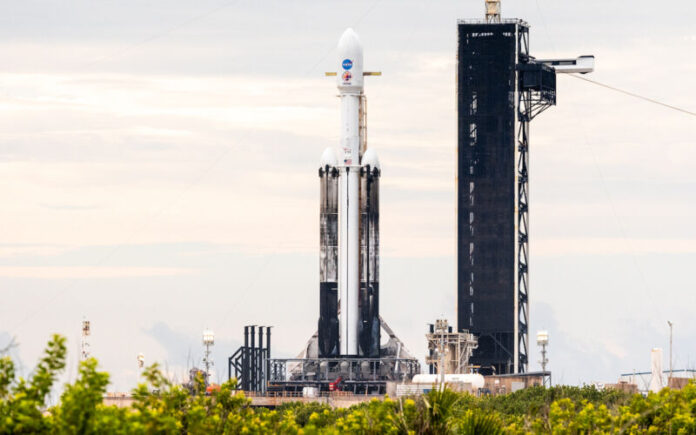
Enlarge / A SpaceX Falcon Heavy rocket rides a column of thrust off its launch pad Friday at NASA's Kennedy Space Center in Florida. (credit: Trevor Mahlmann/Ars Technica)
CAPE CANAVERAL, Florida—A roughly 3-ton spacecraft launched Friday from NASA's Kennedy Space Center in Florida to begin a six-year trip to an enigma in the asteroid belt, an unusual metallic world the size of Massachusetts that could hold clues about the formation of Earth and other rocky planets.
This mission, named Psyche, will survey its namesake asteroid for at least 26 months, moving to different altitudes to map the metal world with three science instruments. Like all missions exploring the Solar System, the Psyche spacecraft has a long journey to reach its destination, covering some 2.2 billion miles (3.6 billion kilometers) with the help of plasma engines.
No one knows what the spacecraft will find when it reaches the asteroid Psyche. The best images of the asteroid captured through telescopes only show Psyche as a fuzzy blob a few pixels wide. Scientists know it is dense and at least partially made of metal, primarily iron and nickel. The leading hypothesis among Psyche's science team is that the asteroid is likely a leftover remnant from the early history of the Solar System more than 4.5 billion years ago, the exposed core of a failed planet that may have had its outer layers of rock blasted away during collisions with other objects in that chaotic time.
Read 38 remaining paragraphs | Comments
Ars Technica - All contentContinue reading/original-link]




